When engaging a real estate agent to manage your rental property, understanding the fees involved is essential for property owners. In Australia, these fees are not fixed and can vary significantly by location and agency.
Generally, property management fees are calculated as a percentage of the weekly rent, often ranging between 5% to 12%. These fees cover various services provided by agents, including but not limited to, tenant screening, lease management, rent collection, and property maintenance coordination.
The cost of hiring a real estate agent for managing a rental property depends on several factors, including the type of charges imposed by the agency.
This may involve a base management fee, as well as additional costs for marketing and advertising the property, maintenance call-out fees, and administrative expenses.
Moreover, property owners should be aware of the difference between selling a property and renting it through an agent, as commission rates and service scopes differ.
Key Takeaways
- Real estate agent fees for rentals are percentage-based and vary by location in Australia.
- Additional charges may apply for marketing, property maintenance, and other management services.
- Understanding fee structures and services is crucial when selecting a real estate agent for rental management.
Understanding Real Estate Agent Fees
When renting out property, landlords typically engage real estate agents to manage tenant acquisition and ongoing service. Understanding how these agents structure their fees and the average rates they charge is important for calculating potential rental income.
Commission Structure
Real estate agents in Australia may adopt different commission structures for rental properties. These can include:
- Flat Fee: A set dollar amount regardless of the rental price.
- Percentage-Based Commission: A fixed percentage of the weekly or monthly rent.
- Tiered Commission: Variable rates that change based on rental price or performance milestones.
- Negotiated Commission: An agreed-upon rate between the landlord and agent, which can sometimes result in a sliding scale arrangement.
Agents might also combine these structures, offering a fixed commission on rent collection and a flat fee for additional services.
Average Commission Rates
The typical commission rate that real estate agents charge for rental properties in Australia can vary widely. For instance:
- Fixed Percentage: On average, commission rates can range around 7.66% of the weekly rent.
- Calculation Example: For a property renting at $400 per week with a 7.66% commission rate, the calculation would be:
$400 (rent per week) x 7.66% (commission rate) = $30.64 (weekly commission)
Landlords have the opportunity to negotiate commission with agents, which can sometimes result in lower fees, especially if the landlord is offering multiple properties for management or engaging in long-term contracts.
Types of Charges for Rental Properties
When renting out a property, landlords and property investors incur various fees from real estate agents. These fees compensate agents for the management, leasing, and administration services provided.
Management Fees
Management fees are ongoing charges that the property manager levies for the daily operations of a rental property.
In Australia, these fees are typically a percentage of the weekly rent. They can range from 5% to 12% and cover services such as rent collection, property maintenance coordination, and handling tenant enquiries.
For instance, on a property that rents for $600 per week, an 8% management fee would amount to $48 per week.
Letting Fees
Letting fees are one-time charges incurred when the property manager finds and secures a new tenant.
Typically calculated as a percentage of the annual rent or as a flat-rate fee, it often equates to one or two weeks’ rent.
For example, if the weekly rent is $400, the letting fee might be $800 assuming it’s set at two weeks’ rent.
Renewal and Tribunal Fees
Lease renewal fees may apply when a tenant renews their lease. This fee usually amounts to one week’s rent or a set flat-rate.
On the other hand, tribunal fees are charged if the property manager must represent the owner at tribunal hearings regarding disputes with tenants. These are often set rates that are agreed upon within the management contract.
The table below summarises these fees:
| Fee Type | Basis of Charge | Typical Cost |
| Management Fee | Percentage of rent | 5% to 12% of weekly rent |
| Letting Fee | Flat-rate or rent | One to two weeks’ rent |
| Lease Renewal Fee | Flat-rate or rent | One week’s rent or flat-rate |
| Tribunal Fee | Flat-rate | Agreed upon within the contract |
Additional charges may include an annual statement fee for the preparation of financial statements concerning the rental property. These fees ensure landlords have a clear and accurate record of the financial performance of their investment.
Marketing and Advertising Costs
In the competitive landscape of real estate rentals, marketing and advertising are pivotal for visibility and customer acquisition. The costs associated with these functions are variable and depend on the depth of the strategy employed by the agent or the property owner.
Advertising Strategies
To effectively market a rental property, agents may employ a variety of advertising strategies.
Costs can range from $300 to $1,500 for professional real estate photography and videography.
Property listings are also a significant avenue for advertising, with fees for online listing services averaging between $600 and $900 per property, while print listings can exceed $1,000.
Marketing Fees
Marketing fees in real estate typically encompass the broader efforts beyond simple property listings, such as email campaigns, featured listings on websites, and social media promotions.
Agents may charge these fees as a percentage of the rental price or as a flat rate.
Some agencies leverage their existing databases and websites to market properties, which can introduce additional costs.
Real estate marketing fees also need to cover the cost of researching and devising the most effective strategies to reach prospective tenants.
Additional Expenses in Property Management
Managing a rental property goes beyond the basic management fees. Property owners should budget for various additional expenses that are essential for the upkeep and legal responsibilities associated with property management.
Repairs and Maintenance
Repairs and maintenance are inevitable expenses for property owners to keep their rental properties in good working order and maintain value.
Costs vary depending on the state of the property and the extent of the work needed.
GST applies to these services, increasing the overall expenditure. It’s critical that property owners factor this tax into their budget.
Routine Repairs and Maintenance example:
- Plumbing fixes: $150 – $200 plus GST
- Electrical repairs: $100 – $250 plus GST
Emergency Repair example:
Property owners must also consider emergency repairs that may arise if the homes they manage are located in areas with more unpredictable weather. For instance, here in Melbourne, rainfall during certain seasons can be relatively heavy and damaging to roofs. A frequent service for Melbourne homeowners is addressing roof leaks. With that in mind, getting a roof leak repair in Melbourne can cost anywhere from $300 dollars to $1500 Australian dollars!
Property Inspections
Property inspections are vital to assess and document the state of the property at various stages of tenancy. They can incur costs, especially if a professional service is utilised.
A property condition report is typically conducted before a tenant moves in, coupled with routine inspections throughout the tenancy to ensure the property is being maintained properly.
Inspection Costs example:
- Initial property condition report: $100 – $150 plus GST
- Routine inspection: $75 – $125 per visit plus GST
Insurance and Hidden Fees
Landlord insurance provides coverage for tenant-related risks, building damage, and loss of rental income, but it comes with a cost that varies by policy.
Additionally, there might be hidden fees not initially accounted for in management agreements.
Potential Hidden Fees:
- Lease renewal fees
- Monthly administration fees
- Late payment fees
Insurance Costs:
- Landlord insurance: $300 – $1,000 annually plus GST
Factors Influencing Agent Fees
Real estate agent fees for rentals can vary widely, with several factors directly influencing the overall cost. These fees are not arbitrary but rather reflect the value and demand of the property, the current state of the rental market, and the level of expertise offered by the agent.
Property Location and Demand
The location of a rental property is a primary determinant of the agent’s fees.
Popular Australian cities like Sydney, Melbourne, and Brisbane often see higher fees due to greater demand.
Conversely, places like Hobart and Adelaide, or suburbs distant from city centres, might command lower fees.
The Australian Capital Territory and cities such as Darwin display their unique demand profiles which also affect the fees.
Investment Property and Rental Market
Investment properties in vibrant rental markets like those found in metropolitan areas typically incur higher management fees, as the services required are more complex.
This includes comprehensive rent collection and maintenance coordination.
In a competitive rental market, landlords might find better value for money due to agents offering more personalised services to win business.
Agent Expertise and Competition
Agents with significant experience or specialisation in rental markets may command higher fees for their expertise.
However, the competition among agents can play a balancing role.
In areas with more agents vying for business, fees may be driven down as they compete to offer the most attractive rates while still promising high-quality property management services.
Navigating Commission Rates by Location
Commission rates for real estate agents can vary significantly across Australia, with differences evident between major cities and states.
Commission Rates in Major Cities
Sydney:
- Agents typically charge between 1.8% and 3.5%.
Brisbane:
- The structure is somewhat unique; an agent may charge 5% on the first $18,000 of the sale price and 2.5% for the remainder.
Melbourne:
- Average commission rates are approximately 2.4%.
Adelaide, Hobart, and Darwin:
- These cities may have varying rates, but typically follow the trend of the state commissions within which they reside.
Differences Across Australian States
- New South Wales (NSW): Charges range from 1.8% to 3.5%, averaging at 2.10%.
- Victoria (VIC): The average rate is 2.4%, with a range between 1.6% and 3%.
- Western Australia (WA): The average commission rate is 2.44%, yet most rates fall between 2.5% and 3.25%.
- Australian Capital Territory (ACT): Commission rates fluctuate from 2.5% to 4%, where the average lies at 2.17%.
Selling Your Home Versus Renting Through an Agent
When it comes to real estate transactions, the choice between selling your home and renting it out can significantly impact the fees one incurs and the services received from real estate professionals.
Comparison of Fees and Services
Selling Your Home:
- Real Estate Agent Commission: Agents typically charge a percentage of the property’s selling price, averaging around 2% to 2.5% in Australia. For a property sold at $1 million, this translates to a $20,000 to $25,000 commission.
- Auctioneer Costs: If selling at auction, an auctioneer’s fee will be an additional cost, often a fixed amount or percentage of the selling price.
- Conveyancing Fees: Sellers also need to account for conveyancing fees to handle the legal transfer process.
Renting Through an Agent:
- Property Manager Fees: These are often a percentage of the rental income, usually between 5% to 10%.
- Additional services may include tenant screening, lease management, and property maintenance coordination.
Considerations for Sellers and Landlords
For Sellers:
- They should consider the impact of the real estate agent’s commission on their net proceeds from the sale.
- The potential for a higher immediate financial return from the selling price versus long-term rental income.
For Landlords:
- Ongoing income through rent can be a steady source of revenue, but it involves continuous property management and possible vacancies.
- Property managers relieve landlords from the day-to-day responsibilities, but their fees reduce the net rental income.
Effective Ways to Reduce Estate Agent Charges
Reducing estate agent charges requires a strategic approach to negotiation and property presentation. By addressing these areas, homeowners can secure more favourable terms and potentially lower their expenses.
Negotiating Fees and Commissions
One of the most direct methods to reduce estate agent charges is to negotiate the commission and fees.
- Research: Understand the average commission rates in your area.
- Comparison: Gather quotes from multiple agents to use as leverage.
- Value Proposition: Explain why you believe a reduced commission is justified for your property.
While the typical commission on rentals can range widely, homeowners have the opportunity to discuss these terms before signing an agreement. They should conduct thorough research to understand standard rates in their region and use this knowledge to enter into negotiations informed.
It is crucial to remember that the agent’s remuneration should align with the service provided, and homeowners should be prepared to make a compelling case for any reduction they seek.
Optimising Property Appeal and Value
Enhancing the property’s appeal can increase its value and subsequently ensure better value for money when managing estate agent charges.
- Maintenance: Invest in key improvements that increase property value.
- Advertising: Use high-quality photographs and descriptions in marketing materials.
- Staging: Present the property in the best possible light for inspections.
A property with high demand can justify a lower marketing spend, and a well-maintained property may command higher rent, which can offset the cost of commission.
Homeowners should consider whether the costs of these enhancements are offset by the savings on agent commissions and increased rental returns. Both marketing and advertising play a pivotal role in property demand, which can provide leverage in agent fee discussions.
Frequently Asked Questions
When considering the management of rental properties in Australia, property owners often inquire about the fees involved. Real estate agents charge for various services, and these fees can vary significantly by state and agency.
What are the typical agent fees for managing rental properties in New South Wales?
In New South Wales, management fees range from 1.8% to 3.5%, with an average fee of around 2.10% for the management of houses or units.
What is the standard property management fee in Victoria?
The average rate for property management in Victoria stands at 2.4%, with charges generally ranging between 1.6% and 3%.
How much do property managers typically charge in Queensland?
Property management fees in Queensland, particularly for agencies in Brisbane, can range from 7.5% to 12% plus GST.
What constitutes a letting fee for rentals in NSW?
A letting fee in New South Wales is typically charged as a one-off fee for finding a tenant, which can equate to one or two weeks’ rent.
What are the average management fees for rental properties in Melbourne?
The average management fees in Melbourne align with the broader Victorian standard, remaining around the 2.4% mark.
How do rental agent fees in the Sunshine Coast compare to the national average?
On the Sunshine Coast, rental agent fees are competitive with national averages. However, exact figures can vary between agencies.



